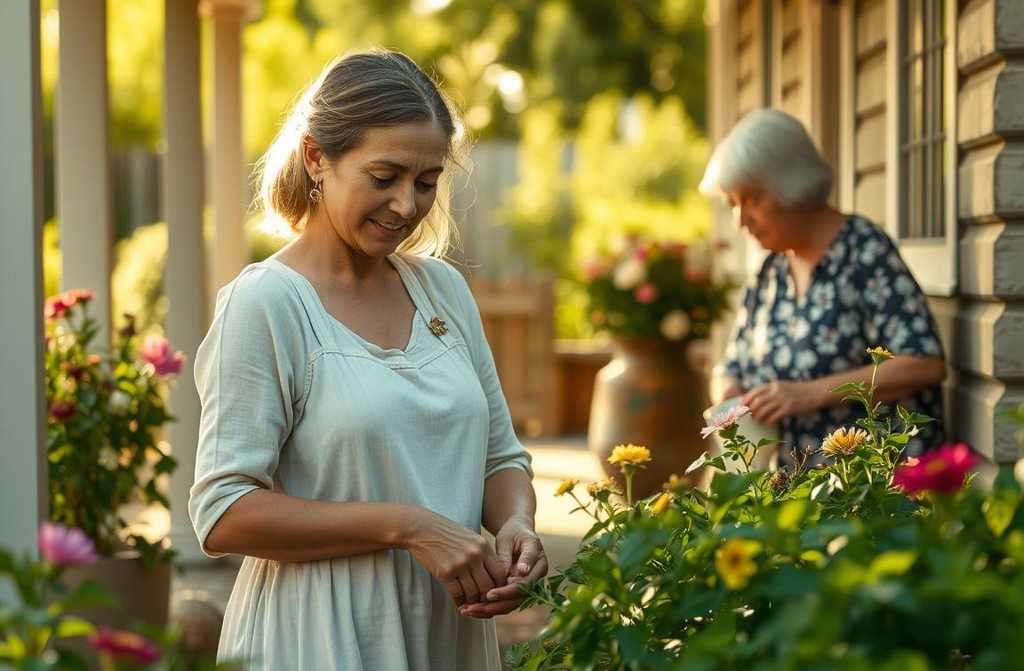З життя
They Mocked Me for Being ‘Country,’ Yet They Came from the Middle of Nowhere Themselves…

They mocked me for being a “country bumpkin,” even though they came from the same roots
I grew up in a tiny village in the Yorkshire Dales. From childhood, I was used to the land, to hard work, to knowing that everything had to be earned by hand. We werent wealthy, but we lived with dignity. And it was then that I fell in love with the soilnot as a chore, but as something that settled my soul. I love digging in the garden, growing vegetables, fruit, and herbs with my own hands. It grounds me, calms me, brings me back to myself. So when I got married, I made it clear: “We need a cottage. If we dont have one, well save up until we do.”
At first, my husband wasnt keen on the idea, but seeing how much it meant to me, he agreed. We bought a little house with a plot just outside York. Everything should have been fineif not for his parents. From the very beginning, they looked down on me. Especially his mother, Margaret Elizabeth. Every meeting turned into a slow, quiet humiliation.
“At it again with your carrots? Proper little farmers wife, arent you?” shed sneer.
“Our son didnt go to university and build a life in the city just to grub about in the dirt!”
Id listen and clench inside. Not because I was ashamedbut because I didnt understand the hatred. I wasnt forcing anyone. I was inviting them to share in it, to take pride in it. This wasnt a punishmentit was love, it was living.
For a long time, I endured it. I told myself, *Fine, maybe city folk just dont get it. Different priorities, different values.* Until I found out the truth by accidentand instead of hurt, all I felt was laughter.
Turns out, my husbands parents were from the countryside themselves. His mother grew up in a village near Lincoln, his father in the backwaters of Norfolk. Even now, their own parents still live there, in old cottages, keeping chickens and growing their own food. But after moving to the city years ago, theyd erased it from their historylike they were afraid someone might discover where theyd really come from.
And yet, without a shred of shame, shed still jab at me: “Just look at your flatlike something out of a grannys cottage! All these knick-knacks, photos, little ornaments Our place is sleekclean lines, built-in furniture, none of this clutter.”
But thats what I wantedcosiness, warmth, memories on the shelves. Maybe not trendy, but human.
For years, I said nothing. Never threw it back at her. But one day, after yet another “country bumpkin” remark, I snapped. We were sitting on the patio, and she rolled her eyes at my strawberry cordial and gooseberry pie.
“Ugh, everything about you is so *rural*.”
I smiled and said, softly, “You know what they sayyou can take the girl out of the village, but you cant take the village out of the girl. Only Im not talking about me. Im talking about you, Margaret Elizabeth.”
She froze. I saw her eye twitch. She tried to laugh it off.
“Are you being serious?”
“Dead serious. Im proud of where I come from. Youre ashamed of it. Thats the difference.”
After that, she never said another word. No jabs, no snide comments. She stopped calling me a farmers wife, stopped wrinkling her nose at my homemade jam or pickled onions. If anything, I think she started respecting me.
And lookI dont hold grudges. But it still stings, knowing they tried to shame me for the very thing they once were. Are roots something to be embarrassed by? Is hard work something to scorn?
Im a woman who loves the land. Im not ashamed of my village. I know how to sow and reap, how to pickle and preserve. And Im no less than those who live in “stylish” flats with bare walls. Because where theres no soul, theres no warmth. And Ive got both. Always will.

















